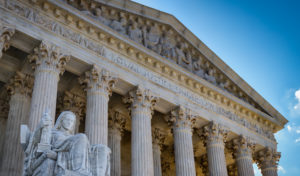Affirmatively Disclosing Agency Legal Materials
ACUS takes an important step forward toward improving agency disclosure of legal materials.
AI, Due Process, and Trade Secrets
A recent court decision about pencils may turn out to help protect rights in an era of artificial intelligence.
AI and the Antitrust Regulator
Antitrust regulators can improve their performance by relying on responsible use of artificial intelligence tools.
A Voluntary Coda
Just as with the process of creating voluntary codes and standards, the development of Codes-and-Standards.org was truly collaborative.
Private Standards and the Benzene Case
A classic Supreme Court case highlights the impact and importance of private standards for regulated entities.
Incorporated Standards in a Federal System
When state and local officials incorporate voluntary codes and standards, they still need to watch out for federal preemption.
Law’s Interaction with Voluntary Codes and Standards
Voluntary codes and standards affect many important aspects of the law and the legal system.
The Procurement Path to AI Governance
Procurement standards could promote responsible use of artificial intelligence by government.
Did Step Zero Help Doom Chevron?
One of the Supreme Court’s most significant administrative law precedents may soon be overturned.
Making Inoperative Guidance Accessible to All
Even when agencies change or rescind guidance documents, they should be clearly labeled and readily available to the public.
Digital Versus Human Algorithms
In deciding to use artificial intelligence, the key question for administrators is a comparative one.
Empathy in an Automated State
Increased use of artificial intelligence in public administration calls for efforts to give government a human touch.












